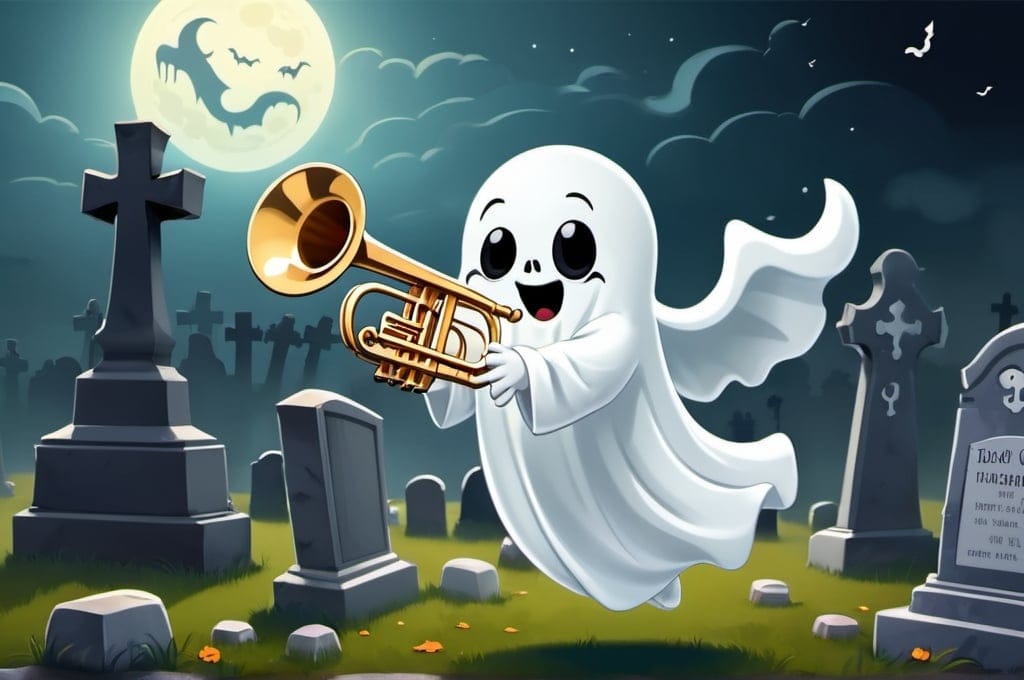
Hello There!
Welcome to my on-writing series!
I’ve been writing and telling stories since I was a little kid. I love to use my imagination and fall into worlds I’ve created, and it’s been the one consistent passion in my life.
I don’t exactly know what sparked me off on my own journey of writing, but I know it had a lot to do with the books I read when I was little. I started with goosebumps and then worked into Stephen King’s catalog which is probably a big part of why I love to write horror.
I always knew that writing books was something I wanted to do when I got older. I started publishing books when I was around sixteen years old with the help of my parents.
Those books weren’t any good, though: they were self-published monstrosities back when novelty shops were willing to charge a fortune to publish any garbage they could get their hands on (much like today, only now there are alternatives), and they were written by a little kid who didn’t understand the industry or what was expected of novelists.
Those books were terrible and it was clear I didn’t know what I was doing, but with my parents help, I managed to get those books published and printed a ton of copies (which my parents still have in their basement). Virtually no sales, which is completely fine considering I still cringe every time I look at them.
Since then, I’ve published twenty different books under three different pen names, and I’m constantly working on creating new content and stories to add to my own catalog and to have fun while doing it. I don’t write to make money, but because it is something I love to do.
It is a sort of therapy for me that helps me relax and unwind after a stressful day at work. I spend a lot of time in my real life (haha!) writing software code and going to meetings to listen to boring people talk about boring things, so it gives me an outlet to express myself in another way.
I am sure there are a lot of people out there who can relate to that. I’m also fairly sure that you are one such person because you picked up this book. Well, kindred spirit, let’s waste no time in delving into this crazy world of indie publishing.
Part I - Who is this for?
Short answer: anyone who wants to write and get their book published.
A few months ago a friend of mine asked for help in developing his story into a published novel, and he wanted to go the self-publishing route after dozens of rejections from established publishers. The big publishers are taking fewer and fewer clients, and they expect authors to be well-established prior to acceptance.
This means that more and more people are turning to indie publishing to get their books out into the world. It also means that there is a strong cottage industry around of so-called self-publishing experts trying to take our money—but we will get to that later.
For now, I’ll tell you about my friend. He had some ideas and a general framework of what he wanted his book to be, but he didn’t know how to finalize his idea into an actual novel or even how to start the publishing process and get his book out there. All he knew was that I had done it, and he was hoping I could guide him along the way.
First, I helped him finish drafting out his story into a full novel that he was proud of. Ironically, this is one of the hardest parts because too often we just want to get our books out into the world before they are ready. I know this from personal experience and have spent much time fixing stories that I wish I’d just spent more time on before publishing.
Then, I helped him load it up into paperback, hardcover, and e-book formats and publish it on multiple platforms to distribute it as widely as possible. This was another trick I had learned, because in many cases the first option for publishing isn’t always the best, and as I learned things along my own journey, I realized that I had made a lot of mistakes I could help him (and you) avoid.
I also helped him establish his author platform and begin to market his book, which were two other things I discovered he knew very little about. In fact, I was able to help him sell as many copies in the first month as it took me half a year to sell simply by doing a few small things. Now he’s well into his own career and having a blast, and he still turns to me for advice each time he’s ready to take another step in his career.
That same advice is what I am putting down in this book, because I want to help everyone avoid the mistakes I made and learn the tips and tricks of the trade in the cleanest and easiest way possible. The reason for this is, being a writer (especially self-published) isn’t just penning words on a page and sending it out into the world anymore. Finding readers in this new world is difficult, and everyone is searching for an edge over the competition.
Shortly after helping my friend get his book out into the world, more people approached me to ask for advice or suggestions, or tips and tricks regarding things I had tried or situations I had gone through.
At some point, it became far easier for me to simply write this set of guidebooks and publish them than it would have been to try and individually help everyone overcome the minutiae of launching their own writing careers.
I’ve done or tried just about everything in my own career, experimented a little bit with all sorts of different processes and techniques to see what works, and my hope is that I can pass that knowledge along to other authors just starting out in their journeys.
More than just helping people follow the process, however, I want to help newcomers understand the process. The market is constantly changing, and understanding how to do things on your own is more important than simply publishing your first book. I want to empower everyone else to keep up with market trends and continue doing things the right way ten and fifteen years in the future.
Part II - What Should You Expect?
You’re probably not really sure what to expect from writing, and (like me) have huge expectations of what can be achieved. You took that first step and settled down to actually start writing your book and send it out into the world.
That’s an awesome first goal toward becoming an author, but not necessarily a guarantee that you’re going to get rich anytime soon. A lot of people dream about getting a novel published, and it makes sense: reading books can transport you to new worlds and give you the chance to experience new things you wouldn’t otherwise experience. It is only natural that many people would wish to become content creators of their own and offer this experience to other people like you.
For me, I’ve always loved the process of writing and how satisfying it can be to get a book down on paper, and I like to think that I have interesting and unique stories that other readers will find compelling. It was only natural for me to start writing books, and I honestly don’t think I could stop myself even if I wanted to. It is a part of my DNA, and when I get absorbed in a new project, I turn into a zombie.
But, once you make that leap into the world of professional or hobbyist writing, you have a long way to go to actually get a story read by a vast audience. Most likely, you aren’t even sure what first steps to take to even finish writing your book. After all, you might have a great idea for a story, but you aren’t sure how to turn it into a final project that makes sense and will be enjoyable to a lot of people.
Worse yet, many of the bigger publishers aren’t even accepting new authors into their stable like they used to. The traditional route is virtually non-existent for newcomers, and all they want to publish are sure bets. Nowadays the only way to get published is to be published (counter-intuitive, I know) and unless you have a friend in the industry or you are persistent and lucky, your only option to get published is going to be doing it on your own.
Part III - Should you self publish?
Let’s just tackle this problem right up front and get it out of the way!
‘Self-published’ is like a dirty word in the industry, but much the same as ‘online dating,’ it is gradually becoming more and more accepted. In fact, the self-published market is eating up the profits and revenue of the traditional industry as more professional (and, in many cases, better) content is being released.
We know that the traditional publishing market is scared because they are starting to fight dirty. They are throwing around their weight by changing rules and offering huge cutbacks to stores, yet they are still losing market share. They refuse to innovate or offer better deals, and until they get on board with the changing world, they will continue to suffer.
The biggest benefit of self-publishing is control: you are your own boss. You can write whenever you want, you set your own deadlines, and you have complete control over the entire process. Of course, this also means you have to do everything on your own, including publishing, marketing, and planning for the future.
Don’t worry, it isn’t nearly as scary as it sounds. Nowadays, self-published authors sell tons of books and have a stable niche in the market, and there are a lot of tools and people out there willing to help you out along the way.
Hopefully, once you finish reading this book, you’ll have a good sense of how you can finish creating your very own novel and starting your career as an author. My goal is to give you the tools and knowledge you need to become a professional indie author.
By the way, in case you are confused, indie and self-published are mostly interchangeable. Some people will define them more specifically, but in general they mean the same thing.
Part IV - About this Series of Articles
In this book, we will discuss such things as actually using self-publishing services to sell and market your book, promoting your work across various platforms, finding new readers, and aligning yourself and your goals for long-term success in the self-publishing industry.
Another book I published is all about the Kindle Scout program and using it as a way to hybrid-publish a book through Amazon. My book that was selected into the program has sold over 15,000 copies in seven months and has won multiple awards.
But, for now, we are focused solely on tips and tricks to help you write, publish, and market that book you’ve been dreaming of for a long time. We will covers such topics as: Is it worthwhile to use writing software, or should we stick to plain old text-editors like Word or Google Docs? Which platforms are the best to publish your book? And which online newsletter services are actually worth the price? We will also cover quite a bit more along the way.
After all, it is best to take things one step at a time. We wouldn’t want to put the carriage in front of the horse, so to speak.
Each of the books in this series can stand on its own and offer advice and avenues you can pursue in your writing endeavor. Maybe you already have your book finished and want to take that next step of submitting to the Kindle Scout Program, or maybe you already have published books and want to know more about building your author platform in presence. Maybe it’s published and you just want to know how to sell more copies without breaking the bank. Whatever level you are at, my series of writing guides will have something to help you take that next step in your career.
I also offer a lot of advice and updates on my website and blog, as well as current and updated content you can track down about the publishing industry. I analyze various publication methods, promotional sites, and market trends. I like finding out what is happening in the market and passing that information along to my readers to help them along the way. After all, we are all in this together!
Part V - How is this series laid out?
This particular guide is framed around explaining a topic for beginners writing a book and how all of these topics have impacted my own career, and then I will offer some deeper analysis and ideas I’ve learned or used on my own. I want to go through my own journey and how I reached all of my conclusions so you can see what this process means to me.
It is broken out in several large sections, so you can skip around between them as needed: writing, publishing, and marketing. If you feel that you already know what you need about a section, then feel free to skip ahead and find something else that might be useful.
Each section is followed by suggestions and advice for how you could apply the ideas to your own style. Finally, we will close each topic with an action item section where I offer you specific things you can do to overcome a problem or use the topic to further your career.
There will be links scattered throughout to direct you to other websites and services as I explain them, but there are also resources on my website to help you quickly find actionable items.



